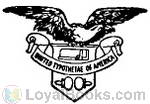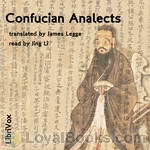|
Books Should Be Free Loyal Books Free Public Domain Audiobooks & eBook Downloads |
|
|
Books Should Be Free Loyal Books Free Public Domain Audiobooks & eBook Downloads |
|
Books on Languages |
|---|
|
Book type:
Sort by:
View by:
|
By: Alfred Ayres (1826-1902) | |
|---|---|
 The Verbalist
The Verbalist
Ayres arranges usage problems alphabetically and treats certain areas in greater detail as he sees fit. For example, his first entry is A-AN (articles). His second is ABILITY-CAPACITY, in which he distinguishes between the meanings. The alphabetical arrangement continues through to YOURS. (Introduction by Bill Boerst) | |
By: John Hendricks Bechtel (1841-) | |
|---|---|
 Slips of Speech : a Helpful Book for Everyone Who Aspires to Correct the Everyday Errors of Speaking
Slips of Speech : a Helpful Book for Everyone Who Aspires to Correct the Everyday Errors of Speaking
| |
By: Daniel Garrison Brinton (1837-1899) | |
|---|---|
 The Maya Chronicles Brinton's Library Of Aboriginal American Literature, Number 1
The Maya Chronicles Brinton's Library Of Aboriginal American Literature, Number 1
| |
 Aboriginal American Authors
Aboriginal American Authors
| |
By: Elias Lönnrot (1802-1884) | |
|---|---|
 Kalevala : the Epic Poem of Finland
Kalevala : the Epic Poem of Finland
| |
By: Elias Lönnrot (1802-1884) | |
|---|---|
 Kalevala, The Land of the Heroes (Kirby translation)
Kalevala, The Land of the Heroes (Kirby translation)
The Kalevala is a 19th-century work of epic poetry compiled by Elias Lönnrot from Karelian and Finnish oral folklore and mythology. It is regarded as the national epic of Karelia and Finland and is one of the most significant works of Finnish literature. The Kalevala played an instrumental role in the development of the Finnish national identity, the intensification of Finland's language strife and the growing sense of nationality that ultimately led to Finland's independence from Russia in 1917... | |
By: Francis Grose (1731-1791) | |
|---|---|
 1811 Dictionary of the Vulgar Tongue
1811 Dictionary of the Vulgar Tongue
| |
By: Maksim Gorky (1868-1936) | |
|---|---|
 Mother
Mother
| |
By: Frederick W. Hamilton (1860-1940) | |
|---|---|
 Word Study and English Grammar A Primer of Information about Words, Their Relations and Their Uses
Word Study and English Grammar A Primer of Information about Words, Their Relations and Their Uses
| |
By: Maksim Gorky (1868-1936) | |
|---|---|
 Creatures That Once Were Men
Creatures That Once Were Men
| |
 Through Russia
Through Russia
| |
 The Man Who Was Afraid
The Man Who Was Afraid
| |
By: Frederick W. Hamilton (1860-1940) | |
|---|---|
 Punctuation A Primer of Information about the Marks of Punctuation and their Use Both Grammatically and Typographically
Punctuation A Primer of Information about the Marks of Punctuation and their Use Both Grammatically and Typographically
| |
By: Maksim Gorky (1868-1936) | |
|---|---|
 Creatures That Once Were Men
Creatures That Once Were Men
| |
By: of Samosata Lucian (120-180) | |
|---|---|
 Works of Lucian of Samosata — Volume 01
Works of Lucian of Samosata — Volume 01
| |
By: Confucius (551 BCE-479 BCE) | |
|---|---|
 Confucian Analects
Confucian Analects
The Analects, or Lunyu (simplified Chinese: 论语; traditional Chinese: 論語; pinyin: Lún Yǔ; literally "Classified/Ordered Sayings"), also known as the Analects of Confucius, are considered a record of the words and acts of the central Chinese thinker and philosopher Confucius and his disciples, as well as the discussions they held. Written during the Spring and Autumn Period through the Warring States Period (ca. 475 BC - 221 BC), the Analects is the representative work of Confucianism and continues to have a substantial influence on Chinese and East Asian thought and values today... | |
By: Sherwin Cody (1868-1959) | |
|---|---|
 The Art Of Writing & Speaking The English Language Word-Study and Composition & Rhetoric
The Art Of Writing & Speaking The English Language Word-Study and Composition & Rhetoric
| |
By: Edwin Arnold (1832-1904) | |
|---|---|
 Indian Poetry Containing "The Indian Song of Songs,"
Indian Poetry Containing "The Indian Song of Songs,"
| |
By: H. Bolingbroke Mudie (1880-1916) | |
|---|---|
 The Esperantist, Vol. 1, No. 1
The Esperantist, Vol. 1, No. 1
| |
 The Esperantist, Vol. 1, No. 3
The Esperantist, Vol. 1, No. 3
| |
 The Esperantist, Vol. 1, No. 2
The Esperantist, Vol. 1, No. 2
| |
By: Hesiod | |
|---|---|
 Works and Days, The Theogony, and The Shield of Heracles
Works and Days, The Theogony, and The Shield of Heracles
Works and Days provides advice on agrarian matters and personal conduct. The Theogony explains the ancestry of the gods. The Shield of Heracles is the adventure of Heracles accepting an enemy's challenge to fight. | |
By: Harry Vincent Wann | |
|---|---|
 French Conversation and Composition
French Conversation and Composition
| |
By: Edmund Luce | |
|---|---|
 Helps to Latin Translation at Sight
Helps to Latin Translation at Sight
| |
By: Leonid Nikolayevich Andreyev (1871-1919) | |
|---|---|
 Man Who Found the Truth
Man Who Found the Truth
An old man, accused of having murdered his family as a young man, spends a lifetime in prison. With brilliant psychological insight so characteristic of Leonid Andreyev's work, we follow this man telling his story about his obsession with truth and lies and his religion of the iron grate, tinged with madness, and not necessarily reliable.. | |
By: Alfred John Church (1829-1912) | |
|---|---|
 Stories from the Greek Tragedians
Stories from the Greek Tragedians
| |
 The Story of the Odyssey
The Story of the Odyssey
| |
By: Gaius Valerius Catullus (84 BC - 54 BC) | |
|---|---|
 The Poems and Fragments of Catullus Translated in the Metres of the Original
The Poems and Fragments of Catullus Translated in the Metres of the Original
| |
By: Goold Brown (1791-1857) | |
|---|---|
 The Grammar of English Grammars
The Grammar of English Grammars
| |
By: Pliny the Younger (61 - ca. 112) | |
|---|---|
 Letters of Pliny
Letters of Pliny
The largest surviving body of Pliny's work is his Epistulae (Letters), a series of personal missives directed to his friends, associates and the Emperor Trajan. These letters are a unique testimony of Roman administrative history and everyday life in the 1st century CE. Especially noteworthy among the letters are two in which he describes the eruption of Mount Vesuvius in August 79, during which his uncle Pliny the Elder died (65 and 66 in this edition), and one in which he asks the Emperor for instructions regarding official policy concerning Christians (Trajan Letter 97)... | |
By: the Younger Pliny (62?-113) | |
|---|---|
 Letters of the Younger Pliny, First Series — Volume 1
Letters of the Younger Pliny, First Series — Volume 1
| |
By: Charles Godfrey Leland (1824-1903) | |
|---|---|
 The English Gipsies and Their Language
The English Gipsies and Their Language
| |
By: Titus Maccius Plautus (254 BC - 184 BC) | |
|---|---|
 Amphitryo, Asinaria, Aulularia, Bacchides, Captivi Amphitryon, The Comedy of Asses, The Pot of Gold, The Two Bacchises, The Captives
Amphitryo, Asinaria, Aulularia, Bacchides, Captivi Amphitryon, The Comedy of Asses, The Pot of Gold, The Two Bacchises, The Captives
| |
 The Captiva and the Mostellaria
The Captiva and the Mostellaria
| |
By: Terence | |
|---|---|
 The Comedies of Terence
The Comedies of Terence
| |
By: Garrick Mallery (1831-1894) | |
|---|---|
 Sign Language Among North American Indians Compared With That Among Other Peoples
Sign Language Among North American Indians Compared With That Among Other Peoples
| |
By: Thomas W. Rolleston (1857-1920) | |
|---|---|
 Myths & Legends of the Celtic Race
Myths & Legends of the Celtic Race
| |
By: Ontario. Ministry of Education | |
|---|---|
 Ontario Teachers' Manuals: Literature
Ontario Teachers' Manuals: Literature
| |
By: Johann Amos Comenius (1592-1670) | |
|---|---|
 The Orbis Pictus
The Orbis Pictus
| |
By: Johan Huizinga (1872-1945) | |
|---|---|
 Erasmus and the Age of Reformation
Erasmus and the Age of Reformation
| |
By: Apollonius Rhodius (3rd Cent. -3rd Cent.) | |
|---|---|
 Argonautica
Argonautica
The story of how Jason and a group of famous heroes of Greece took to sea in the Argos has been told many times, before and after Apollonius of Rhodes, wrote his Argonautica, in the 3rd century b.C.. It is not only the oldest full version of the tale to arrive to our days, but also the only extant example of Hellenistic epic. This was already a popular myth by the times of Apollonius, who makes the story of how Jason and the Argonauts sail to Colchis in search of the Golden Fleece, and have to go through a lot of adventures to fulfill their task, a mix of simple narrative and scholarly catalog. The Argonautica had a deep impact on European literature as a whole. | |
By: S. Griswold (Sylvanus Griswold) Morley (1878-1970) | |
|---|---|
 Modern Spanish Lyrics
Modern Spanish Lyrics
| |
By: Joseph Wright (1855-1930) | |
|---|---|
 A Middle High German Primer Third Edition
A Middle High German Primer Third Edition
| |
By: Robert Wood Williamson | |
|---|---|
 The Mafulu
The Mafulu
The Mafulu, Mountain People of British New GuineaBy Robert W. WilliamsonINTRODUCTION By Dr. A.C. Haddon It is a great pleasure to me to introduce Mr. Williamson's book to the notice of ethnologists and the general public, as I am convinced that it will be read with interest and profit. Perhaps I may be permitted in this place to make a few personal remarks. Mr. Williamson was formerly a solicitor, and always had a great longing to see something of savage life, but it was not till about four years ago that he saw his way to attempting the realisation of this desire by an expedition to Melanesia... | |
By: Siddha Mohana Mitra (1856-1925) | |
|---|---|
 Hindu Tales from the Sanskrit
Hindu Tales from the Sanskrit
| |
By: William Stevens Balch (1806-1887) | |
|---|---|
 Lectures on Language As Particularly Connected with English Grammar.
Lectures on Language As Particularly Connected with English Grammar.
| |
By: Francis Ritchie | |
|---|---|
 Ritchie's Fabulae Faciles A First Latin Reader
Ritchie's Fabulae Faciles A First Latin Reader
| |
By: Mikhail Yurevich Lermontov (1814-1841) | |
|---|---|
 Hero of Our Time
Hero of Our Time
A Hero of Our Time is indeed a portrait, but not of one man. It is a portrait built up of all our generation's vices in full bloom. You will again tell me that a human being cannot be so wicked, and I will reply that if you can believe in the existence of all the villains of tragedy and romance, why wouldn't believe that there was a Pechorin? If you could admire far more terrifying and repulsive types, why aren't you more merciful to this character, even if it is fictitious? Isn't it because there's more truth in it than you might wish? | |
By: C. A. Toledano | |
|---|---|
 Pitman's Commercial Spanish Grammar (2nd ed.)
Pitman's Commercial Spanish Grammar (2nd ed.)
| |
By: Henry Sweet (1845-1912) | |
|---|---|
 Icelandic Primer with Grammar, Notes and Glossary
Icelandic Primer with Grammar, Notes and Glossary
| |
By: Edward Sapir (1884-1939) | |
|---|---|
 Language An Introduction to the Study of Speech
Language An Introduction to the Study of Speech
| |
By: Henry Jenner (1848-1934) | |
|---|---|
 A Handbook of the Cornish Language chiefly in its latest stages with some account of its history and literature
A Handbook of the Cornish Language chiefly in its latest stages with some account of its history and literature
| |
By: Marmaduke Park | |
|---|---|
 Aesop, in Rhyme Old Friends in a New Dress
Aesop, in Rhyme Old Friends in a New Dress
| |
By: Robert G. Latham (1812-1888) | |
|---|---|
 A Handbook of the English Language
A Handbook of the English Language
| |